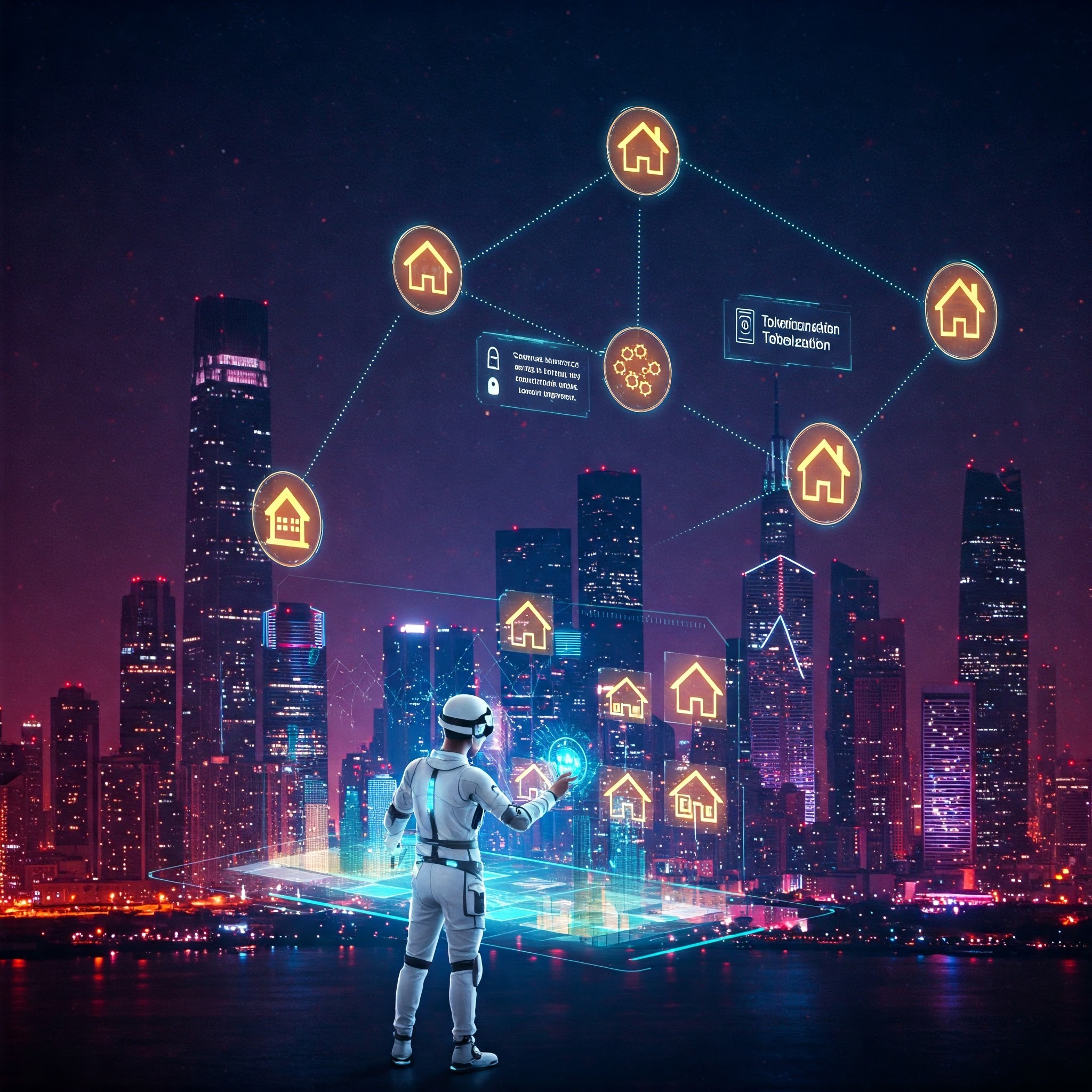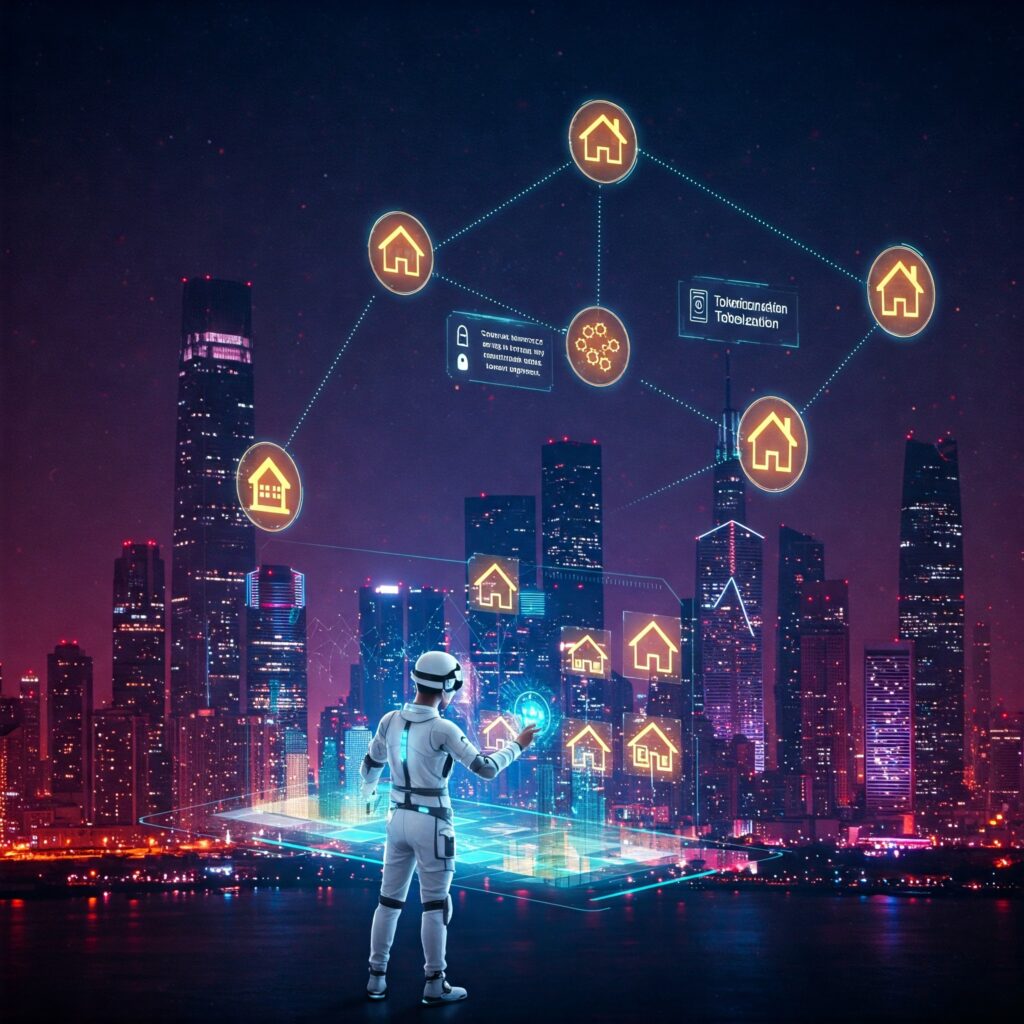How Tokenization is Transforming Real Estate & Traditional Investment Markets

Introduction
Imagine being able to invest in a luxury apartment in New York or a commercial building in London without having millions of dollars. Sounds impossible? Thanks to tokenization, this is now a reality.
Tokenization is changing the way we invest in real estate and traditional markets. It is making high-value assets accessible to more people. But what exactly is tokenization, and how does it work?
In this article, we will break it down in simple terms. You will learn what tokenization is, why it matters, its benefits, how to get started, challenges, and what the future holds.

Understanding the Topic
What is Tokenization?
Tokenization is the process of converting real-world assets into digital tokens on a blockchain. These tokens represent ownership of the asset and can be bought, sold, or traded just like stocks.
For example, imagine a $1 million property. Instead of selling the whole property to one buyer, the owner can tokenize it into 10,000 digital tokens. If you buy 100 tokens, you own 1% of the property.
Why is Tokenization Important?
Traditional investment markets have several barriers, including high costs, slow transactions, and limited accessibility. Tokenization removes these barriers and makes investing easier and more efficient.
Real-World Examples
- Real Estate: Companies like RealT and Red Swan are using blockchain to tokenize properties, allowing fractional ownership.
- Stocks & Bonds: Companies are exploring security tokens as an alternative to traditional shares.
- Art & Collectibles: Masterworks is tokenizing high-value artwork so multiple investors can own a piece of a famous painting.
Key Benefits / Advantages
1. Increased Accessibility
Investing in real estate or fine art usually requires a lot of money. Tokenization allows fractional ownership, so even small investors can participate.
2. Enhanced Liquidity
Traditional assets like real estate take time to sell. With tokenization, you can sell your tokens on a marketplace instantly.
3. Transparency & Security
Blockchain records every transaction, reducing fraud and ensuring transparency.
4. Reduced Costs
Tokenization removes middlemen like brokers, reducing transaction fees and making investments cheaper.
5. Faster Transactions
Buying and selling real estate usually takes weeks or months. With tokenization, transactions can happen in minutes.
Step-by-Step Guide / How-To
How to Get Started with Tokenized Investments
- Choose a Platform: Platforms like RealT, Securitize, and tZERO offer tokenized assets.
- Create an Account: Sign up, complete KYC (Know Your Customer) verification, and link your digital wallet.
- Select an Asset: Browse available tokenized properties, stocks, or artwork.
- Buy Tokens: Purchase tokens using fiat money or cryptocurrency.
- Manage Your Investment: Track performance and trade tokens when needed.
- Withdraw or Sell: Sell your tokens for a profit or hold them for long-term gains.
Expert Tips
- Research platforms before investing to avoid scams.
- Diversify your portfolio to reduce risks.
- Check if your country regulates security tokens.
Common Mistakes to Avoid
- Investing without understanding blockchain and tokenization.
- Falling for scams that promise guaranteed returns.
- Ignoring legal and tax implications.
Common Problems & Solutions
1. Regulatory Uncertainty
- Problem: Tokenized assets are still a new concept, and regulations vary by country.
- Solution: Invest in platforms that comply with financial regulations.
2. Limited Marketplaces
- Problem: Not all assets have active secondary markets for trading tokens.
- Solution: Choose highly liquid assets with strong demand.
3. Cybersecurity Risks
- Problem: Digital assets are vulnerable to hacking.
- Solution: Use secure wallets and enable two-factor authentication.
Future Trends / What’s Next?
1. Mainstream Adoption
Big companies and banks are exploring tokenization, which could lead to mass adoption.
2. Government Regulations
More countries are creating rules for tokenized assets, making them safer for investors.
3. Integration with Decentralized Finance (DeFi)
Tokenized assets could be used in DeFi applications for lending, borrowing, and earning passive income.
4. Expansion to New Asset Classes
Beyond real estate and stocks, tokenization could include commodities, intellectual property, and even sports contracts.
Conclusion & Final Thoughts
Tokenization is revolutionizing the investment world by making assets more accessible, liquid, and secure. While challenges exist, the potential for growth is enormous.
If you want to explore tokenized investments, start with a trusted platform, do your research, and stay informed about regulations.
What do you think about tokenization? Share your thoughts in the comments! Don’t forget to subscribe for more updates on crypto and blockchain technology.
FAQ
1. What is tokenization in simple terms?
Tokenization is converting physical assets into digital tokens that represent ownership and can be traded online.
2. Is tokenization legal?
Yes, but regulations vary by country. Always invest through legally compliant platforms.
3. Can I sell tokenized assets anytime?
It depends on the platform and asset. Some assets have active markets, while others may take time to sell.
4. How do I store tokenized assets safely?
Use a secure digital wallet and enable two-factor authentication to protect your tokens.
5. Is tokenization only for real estate?
No. Tokenization can be applied to stocks, artwork, bonds, and even intellectual property.